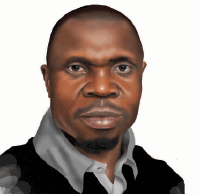When he bloodlessly sacked Muhammadu Buhari on August 27, 1985, Ibrahim Babangida made certain historical statements that students of Nigeria’s political history may do well to analyse as we move forward as a nation.
One of such statements reads: “Fellow Nigerians, this country has had, since independence, a history mixed with turbulence and fortune. We have witnessed our rise to greatness, followed with a decline to the state of a bewildered nation….”
In this moment, at this time, while we comment on recent events, this statement should re-echo strongly in our minds and intellect. We have seen turbulence. We have experienced fortune. We have had moments of our rising; before crashing miserably. The last few days have been one of such moments of our rising.
This is a time like no other in the history of Nigeria. It’s a time both to mourn and to rejoice. This time is giving birth to a future unknown; a future of surprises; a future of certainties and uncertainties. It should be the finest moment in Nigeria’s political history.
Here is one moment when an election, judged as the best in Nigerian history, has come and gone without much controversy. Yes, there were riggings and manipulations; but they were caused more by the deficiency of the Independent National Electoral Commission (INEC) than by politicians.
This moment is uncommon because it marks the first time in Nigeria’s political history that an incumbent president has been defeated in a presidential election and he accepts the defeat without a struggle. I have always noted that President Jonathan was not prepared for this election; but good enough, he did nothing to manipulate the process in his favour.
This moment marks the first time in Nigeria’s history that a sitting president has accepted defeat while votes were still being counted in an election he contested, and the final declaration of victory by INEC was still hours away. This has never happened before in Nigeria.
Not only that, instead of calling an assembly of legal juggernauts to seek counsel and plot how to scuttle the will of the Nigerian people, he reached for his mobile telephone handset, dialed a rather strange set of numbers and offered his congratulations to the man who was yet to be officially declared the winner.
Jonathan could have rigged to win. He had all the machinery to achieve that. Or he could have created a scenario of bloodshed and war; and thereafter invoke certain sections of the constitution to extend his tenure and cancel the planned elections. He refused to.
For example, he could have given Boko Haram a chance to over-run more states in the north, then declare a state emergency and seek the consent of the PDP-controlled National Assembly to block the elections. That was an available clue which he did not exploit. Little wonder dunderheads call him a clueless president.
Instead, he armed the men and women of the military and commanded them to recapture the territories seized by insurgents so that people living there could exercise their constitutional rights of electing a president of their choice. At the end, even the people he rescued voted against him.
History must have revealed to Jonathan that the north east has always been Buhari’s political stronghold. He consistently wins there. So, logically, Jonathan had a wise choice of not going after the insurgents who had made the north east their war front. By so doing, he would have stopped the people from voting for Buhari.
When Jonathan engineered the postponement of elections from February 14 to March 28 so that those held captives could be freed and allowed to vote for a man of their choice, he was insulted and called unprintable names by the APC supporters. However, at the last count of the vote, the opposition gained a massive victory from that effort.
Jonathan could even have stopped the process before the election. He could have sacked the INEC chairman, Prof. Attahiru Jega, when allegations of tribal conspiracy between Buhari and the chairman became an open secret. Instead, he simply waved off such a suggestion and declared publicly that his re-election was not a do or die affair.
Some people analysed that to mean weakness and helplessness; the opposition thought they had boxed him to submission. I would rather we see it as ‘this nation is greater than any personal ambition.’ Where others in his position would have played smart and hang on even at the risk of bloodshed, he showed statesmanship.
President Jonathan had so many opportunities to circumvent the rules and hang on to power. Somebody in the immediate past wickedly invoked such rules to demand an unconstitutional third term in office. Jonathan chose not to. He sacrificed his personal ambition for the good of the country.
The lesson to learn here is that by playing according to the rules – a role some dimwits have interpreted to mean weakness and cluelessness, by conceding defeat and relinquishing power to a new administration without the usual tension-raising court battle, Jonathan has set a political gamesmanship standard worthy of applause.
In the words of the former vice president, Atiku Abubakar, history will be fair to Jonathan for organising and supervising the most blame-free election in Nigeria; and taking a bow in such an unthinkable, statesmanship manner.
For displaying such uncommon political strength in the face of unwarranted abuses and insults from political jobbers, President Jonathan has unwittingly walked into Nigeria’s political hall of fame as the first living occupant. He has made history: he failed to succeed himself but has won a place in history.













